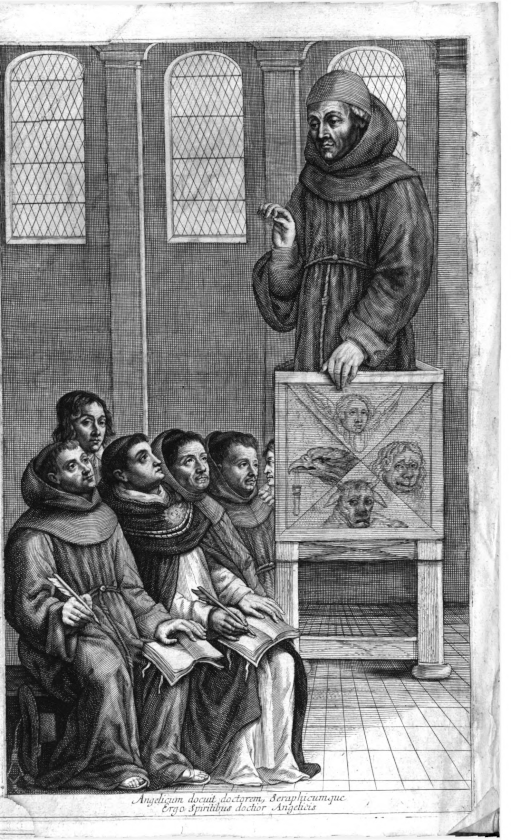Associate Rick Dietz
 Franciscans set aside October 27 to celebrate Alexander of Hales. Most of us probably haven’t heard of him, or if we have, we know little about him. We usually don’t see or hear quotes from his writings and he wasn’t canonized a saint. Yet, without him, we may not have Saint Bonaventure, Saint Thomas Aquinas or Blessed John Duns Scotus.
Franciscans set aside October 27 to celebrate Alexander of Hales. Most of us probably haven’t heard of him, or if we have, we know little about him. We usually don’t see or hear quotes from his writings and he wasn’t canonized a saint. Yet, without him, we may not have Saint Bonaventure, Saint Thomas Aquinas or Blessed John Duns Scotus.
Alexander was born at Hales Owen in Gloucestershire, England, around 1185 to a well off but not noble family. He became a diocesan priest and studied and taught at the University of Paris. He was well known in England and in France as a great scholar and preacher. He held a teaching “chair” at the University of Paris, which in that day was arguably the most prestigious theology school. Side note: Folks from Oxford would be those who might argue.
In 1236 he chose to become a Franciscan. At this time he is about 50 years old. For a person with his scholarship and age to decide that the Franciscan way of living the gospel was what he desired, was stunning to the faculty and students. He took his teaching “chair” to the Franciscan Friary near the campus and continued teaching from there. Because of this, Franciscan friars were assured of future students having access to learning theology. This began a long string of Franciscans holding the theology “chair” at the university for many years.
Saint Thomas Aquinas credits Alexander’s work for helping him write his “Summa.” Thomas was at the University at this time as a student along with Bonaventure. Saint Bonaventure credits Alexander for his desire to also become a Franciscan. Bonaventure will eventually hold the same teaching chair that Alexander held. Blessed John Duns Scotus, coming to the University of Paris several years after Bonaventure, is appointed to hold the teaching “chair” also.
Alexander is credited with being one of the first theologians to attempt to harmonize scriptural theology with the Greek philosophy of Aristotle. His students pick up where he left off on this venture. He also furthered the use of Peter Lombard’s “Sentences.” From the time of Alexander and later, it was a standard practice for theology students to write commentaries on the “Sentences.”
Scholars today, studying Alexander’s writing, do not find any substantial changes in the theological writings from before he was a Franciscan or after he becomes a friar. Thus, they believe that Alexander found continuity in his writing and in the living the Franciscan life.
Theologian Ludwig Hödl writes of Alexander’s thought: “according to the scholastic teaching on “imago,” Christ is not so much the image of God, in order to show the children of God what they are; rather, to show the human world who God is.”
So today, let’s remember Alexander of Hales as a great theologian, but also as a person humble enough to desire to live according to the Gospel in the footprints of Saint Francis.

